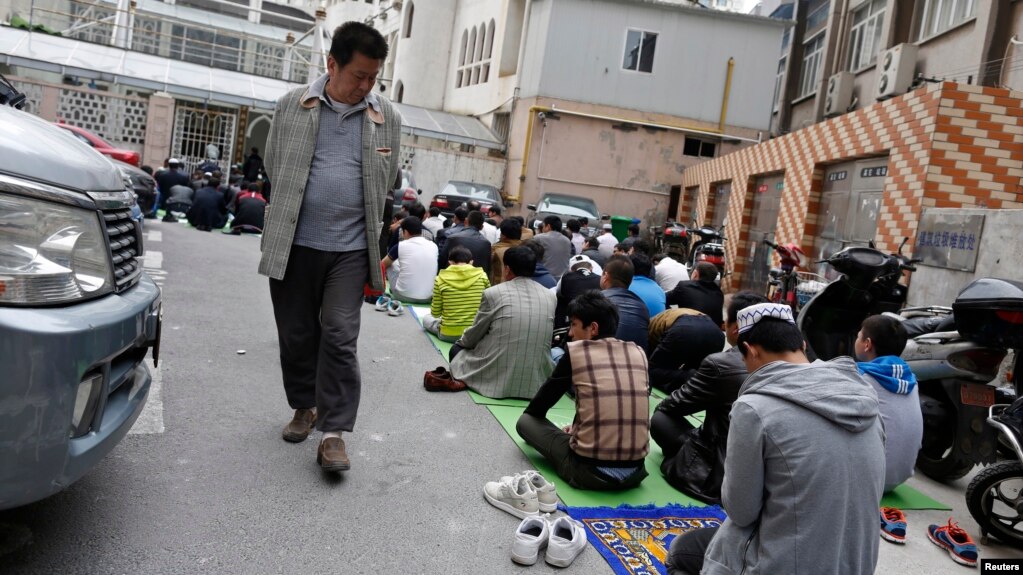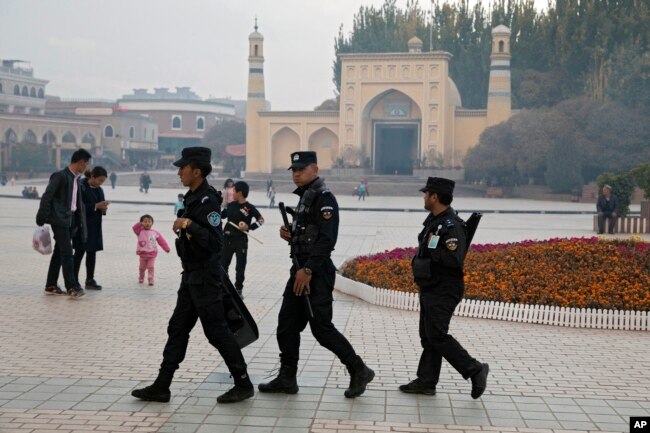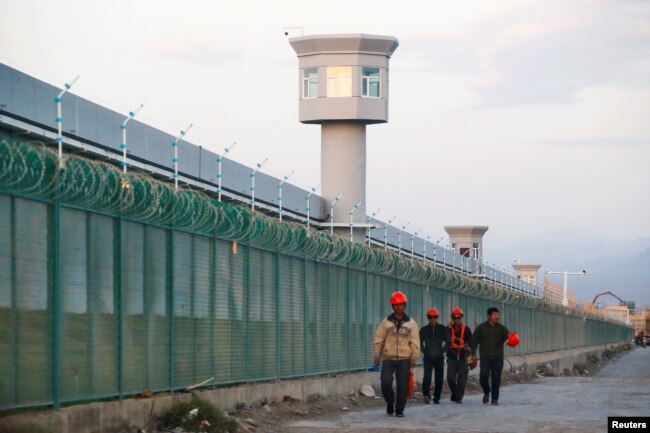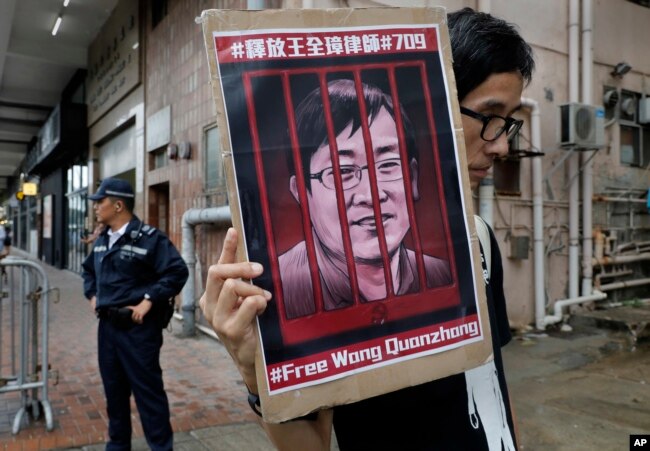May 08, 2019 11:27 AM
https://www.voanews.com/a/rights-groups-decry-china-s-ban-on-fasting-during-ramadan-/4908779.html?fbclid=IwAR08BEOO1wvnamShg2t7-qT2KoFk65Wctj7Db9Uw_buQlx1bYDP9E8zJpA8

Rights groups are calling for greater international attention on the Chinese government due to recent cases of alleged rights abuses, including the latest clampdown in Xinjiang to ban Uighurs, young and old, from fasting or observing Ramadan, which starts this week.
They also denounced Beijing’s treatment of prominent rights lawyer Wang Quanzhang, who has been held incommunicado since 2015.
Fasting forbidden in Xinjiang
In Xinjiang, Uighur households are asked to keep an eye on one another and will receive collective punishment if any of them is found to be fasting, according to Dilxat Raxit, spokesman for the exile, Germany-headquartered World Uighur Congress.
Even local officials or pro-Beijing Uighurs are monitored to see if they’ve truly given up their own religious belief and pledged absolute loyalty to the Communist rule, which sees fasting as “a sign of extremism,” Raxit said.
China is believed to have categorized open or even private displays of religious affiliation —including growing an “abnormal” beard, wearing a veil or headscarf, regular prayer, fasting or avoidance of alcohol — as “signs of extremism.”

Across China, young Uighur students in college are asked to report to school canteens in person at least three days a week to have lunch or else they, school faculties and their parents in Xinjiang will be punished or sent to so-called “re-education centers,” Raxit added.
International pressure?
“I fear that more and more people may be forced into re-educational concentration camps as a result of their practice of fasting during the month of Ramadan. The international society should pay more attention to the fact that Uighurs are put under a series of restrictions and systemic persecution during Ramadan,” he said.
Religious observance has long been monitored by authorities in Xinjiang.
Since 2013, there have been more systematic efforts to enact regulations pertaining to all aspects of the practice of Islam there, from monitoring of mosques to individual dress and comportment, according to Michael Clarke, an associate professor at Australian National University’s National Security College.
“It appears that the ‘re-education’ system will be an indefinite fixture of CCP [Chinese Communist Party] rule in Xinjiang,” Clarke said in an email to VOA.
“This has been illustrated by the fact that more facilities are being built, different types and categories of centers within the system have been more clearly delineated and that the system appears to be under the jurisdiction of the Ministry of Justice,” he added.
Making matters worse, it appears Uighurs are not being released from the system, but shifted to different categories of internment camps within the system, said the professor.

Clarke added it would be ideal if the international community via the United Nations or other multilateral organizations would issue a clear statement, declaring China’s internment system unacceptable, or impose economic sanctions on officials in Xinjiang, who abuse human rights.
But, he said, “there appears [to be] little prospect for action to ameliorate the situation given China’s economic and strategic weight.”
Condemnation from Washington
Last Friday, Randall Schriver, who leads Asia policy at the U.S. Defense Department, accused China of having imprisoned “at least a million, but likely close to three million citizens out of a population of 10 million” in “concentration camps” in Xinjiang.
His remarks were seen as some of Washington’s strongest condemnation of Beijing’s treatment of Muslim minorities.
But Monday, China said such comments “are a gross interference in China’s internal affairs.”
Foreign Affairs spokesperson Geng Shuang reiterated: “the vocational and educational training institutions there were set up as a preventive approach to combat terrorism. Relevant measures were taken entirely according to law, which is endorsed and supported by people of all ethnic groups and has produced positive social effects.”
More rights abuses
Rights activists also express grave concerns over China’s continued suppression of local dissidents.
Albert Ho, chairman of China Human Rights Concern Group in Hong Kong, finds it unacceptable that China continues to keep rights lawyer Wang Quanzhang inaccessible to his family.

In late January, a court in Tianjin found Wang guilty of state subversion and sentenced him to four-and-a-half years in prison.
According to his wife Li Wenzu, Wang was relocated to a prison in Shandong province in late April, which refuses to arrange family visits on the grounds its visiting room is under renovation.
“If you let [his] wife goes [sic] into the prison cell to see him, it could still be arranged. There’s no reason why the visiting room while [being] re-decorated can be excused to deprived Wang Quanzhang’s rights of receiving visits by his family members,” Ho said.
“I think it’s totally absurd and a blatant violation of the laws,” he added.
During a meeting Monday with five foreign diplomats, Li demanded Chinese authorities abide by the laws and arrange her meeting with Wang within a month.

